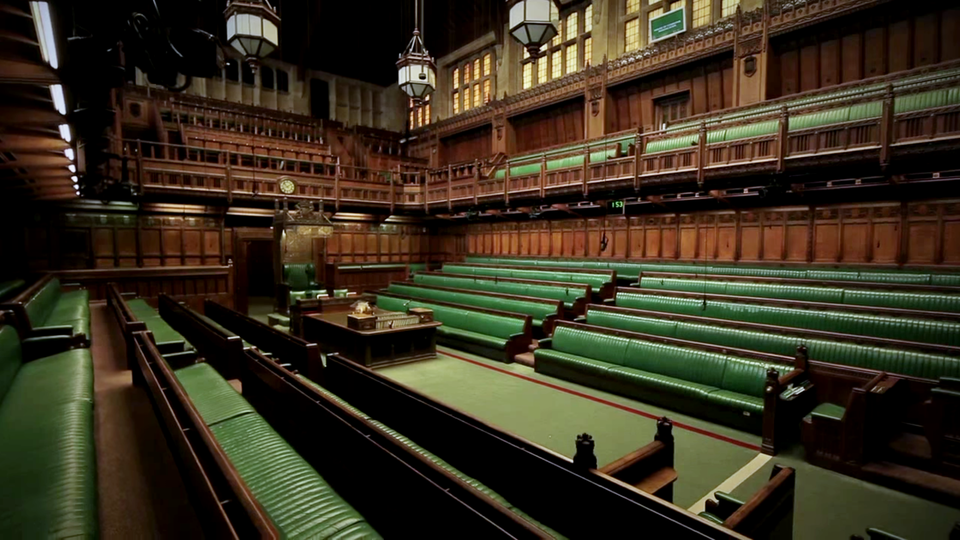prorogation / prorogue

Prorogation is an arcane parliamentary jargon term meaning the suspension of a session of parliament without formally dissolving it. Prorogation is a commonly used without much public notice in a pro forma manner in the few days leading up to a new session or just prior to parliament’s dissolution and a new election. But occasionally an attempt to prorogue a parliament is controversial and foments public protest. One such case was in the United Kingdom in September 2019 when the queen, at the request of Prime Minister Boris Johnson, prorogued parliament in the run-up to the UK’s Brexit from the European community. Another controversial case was in January 2010 when Canadian Prime Minister Stephen Harper asked the governor-general to prorogue parliament during the February Vancouver Winter Olympic Games. The prorogation was ostensibly to give time to consult on the economy but was viewed by the opposition as an attempt to stifle criticism of the government over the treatment of Afghan detainees and avoid a potential no-confidence vote.
These controversies are rather recent, but the word is much, much older. The noun prorogation and the verb to prorogue are borrowings from Anglo-Norman verb proroger and ultimately from the Latin legal verb prorogare meaning to prolong, defer, extend in office.
Prorogation appears in English at the beginning of the fifteenth century with the now obsolete sense of prolongation or extension. From a Scottish text written c. 1400:
If hit likes the kyng of Skotlond to swere to the prorogacioun of this trewes.
(If the king of Scotland desires to swear to the prorogation of this truce.)
By the middle of that century, the verb was being used to mean to postpone or defer. From the Rolls of Parliament for 1453:
The Kyng, by th’avise and assent of the Lordes Spirituels and Temporels in this present Parliament assemblyd, and by th’auctorite of the same, to th’entent that hasty purveaunce of good for the defence of this land myght be hadde, woll and grauntith to forbere and proroge, and to putte in suspence, th’execution of leviyng of the fyndyng of the seid XIII M. men Archers, and of yche of theym, for the space of II yeres next comyng after the Fest of Pasch next ensuing.
(The king, with the advice and assent of the Lords Spiritual and Temporal assembled in this present parliament, and by the authority of the same, with the intent that swift purveyance of good for the defense of the land might be attained, wills and grants to forbear and prorogue, and to put in suspense, the execution of the levying of the funding of the said 11,000 archers, and of each of them, for the space of 2 years coming after the next ensuring Easter.)
And by 1455, during the Wars of the Roses, the verb was being used in the sense of suspending parliament:
For asmoche as the holy Fest of Cristemas approchith so nygh, that rathir than the lond shuld be loste, it myght like the said Lieutenaunt and all the Lordes, this present Parliament to proroge, adjorne, or dissolve, so that entente that these said riottes and inconveniences myght be resisted.
(For as much as the holy feast of Christmas soon approaches, that rather than the land be lost, it might like the said Lieutenant and all the Lords, this present parliament prorogue, adjourn, or dissolve, with the intent that these said riots and inconveniences might be resisted.)
Sources:
Anglo-Norman Dictionary, AND Phase 4, 2013–17, s.v. proroger, v.
Berger, Adolf. Encyclopedic Dictionary of Roman Law. Philadelphia: American Philosophical Society, 1953, s.v. prorogare, v. Brepols: Database of Latin Dictionaries.
du Cange, Dominus, et al. Glossarium mediae et infimae latinitatis. Niort: Léopold Favre, 1883-1887, s.v. prorogare, v. Brepols: Database of Latin Dictionaries.
Latham, Ronald E., David R. Howlett, and Richard K. Ashdowne, eds. Dictionary of Medieval Latin from British Sources. Oxford: Oxford UP, 2013, s.v. prorogare, v. Brepols: Database of Latin Dictionaries.
Oxford English Dictionary Online, June 2007, s.v. prorogation, n., prorogue, v.
Ramshorn, Ludwig. Lateinische Synonymik. Leipzig: Baumgärtner, 1831 and 1833, s.v. prorogare, v. Brepols: Database of Latin Dictionaries.
“Rotl. Parliament. XXXI & XXXII Henry VI” (1453). In Rotuli Parliamentorum, vol. 5 of 6. London: 1767–77, §34, 233/1. HathiTrust Digital Library.
“Rotl. Parliament. XXXIII Henry VI” (1455). In Rotuli Parliamentorum, vol. 5 of 6. London: 1767–77, §15, 285–86. HathiTrust Digital Library.
Photo credit: UK Parliament, 2012. Wikimedia Commons. Licensed under a Creative Commons Attribution 3.0 Unported license.